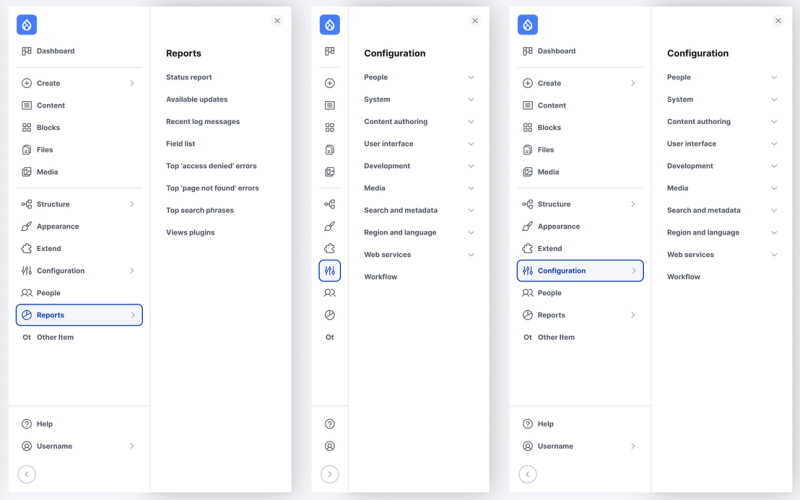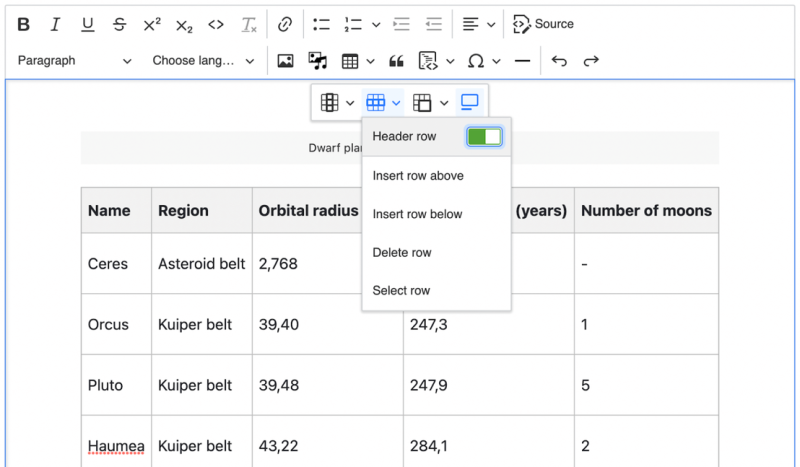We break down the new features available in Drupal 11, and offer our thoughts on if it’s time to upgrade.
Introduction
Drupal 11 has arrived! If you’re familiar with Drupal 10, this latest version will feel similar, while offering meaningful improvements to improve productivity, performance, and flexibility, for content managers, developers, and end users alike.
We’re starting to build our newest sites in Drupal 11 to take advantage of all the latest features and improvements, but there’s no rush to move to Drupal 11. Drupal 10 remains an excellent CMS and will be supported until at least mid-2026. In this article, we’re rounding up the benefits of Drupal 11 to help inform whether and when you upgrade.
Administration
The administration experience has received several quality-of-life improvements that make day-to-day site management much better. The classic administration toolbar now renders faster on both back-end and front-end pages, helping you access important tasks more quickly.
Permission management, a common administrative task, has been streamlined with a quick filter feature that helps you locate specific permissions without scrolling through lengthy lists.
Perhaps most notably, Drupal 11 introduces an experimental Navigation module that completely reimagines the classic toolbar. This left-aligned, collapsible vertical sidebar makes it easier to navigate deep into administration menus and can be customised with configurable blocks to suit your workflow.

Content creation and management
Content editors will find improvements to the authoring experience. CKEditor 5, introduced in Drupal 9.5, continues to improve with additional configuration options. For example, you can now specify which programming or markup languages should be available in the code block feature.

Text fields can now enforce specific text formats, creating a more consistent editing experience. The unified entity revision editing experience makes managing prior versions of content more intuitive across different content types, whether they're in blocks, nodes, or other entity types.
For those managing large amounts of content, a new floating action bar enables quick bulk operations on multiple selected items. Meanwhile, the Workspaces module, now stable, allows you to prepare and stage content updates as a set, perfect for coordinated launches or time-sensitive content releases.
Developer-friendly features
For developers and site builders, Drupal 11 brings several significant improvements.
Single-Directory Components (SDCs) have moved from a contributed module to a stable core feature. This approach to UI component creation keeps everything needed for a component in one directory, making components easier to find, reuse, and write. Front-end developers don't need extensive Drupal knowledge to work with SDCs, making collaboration more straightforward.
JavaScript modernisation continues with modern components replacing more jQuery UI elements. On-the-fly JavaScript file minification simplifies development by eliminating additional build steps, while reducing file sizes by up to two-thirds.
Debugging and cache controls have been enhanced with a ‘Twig Development Mode’ that enables powerful debugging tools with a single click. The ‘Do Not Cache Markup’ option gives developers granular control over caching mechanisms, making it easier to see immediate changes during development.
Finally, Drupal hooks are now object oriented, aligning them with modern Drupal PHP practices.
Media and block management
Media management gets several practical improvements too. Filename sanitisation and transliteration settings for file uploads come standard, including options for whitespace replacement and lowercasing. Media entities now support revision editing, and the default image styles use WebP format, reducing image sizes by approximately 25-34%.
Block management is more flexible, with the ability to create custom blocks directly under the Structure section in the administrative interface. More granular permissions allow management of blocks by type, and block content revisions can be reviewed and rolled back when needed. Blocks can also be shown or hidden based on response status (success, access denied, or not found).
Performance and security
Substantial effort has gone into making Drupal's core smaller and more efficient. Contributors have streamlined the code to focus on Drupal's core strengths, including security and performance. All code deprecated in Drupal 10 has been removed, reducing confusion and redundancy in Drupal's APIs.
Enhanced lazy loading capabilities through BigPipe improve the user experience by supporting interface previews for delayed content, reducing page reflows, and streamlining the experience. Responsive images and oEmbed content can be configured to load lazily, preventing them from slowing initial page loads.
Do I need to upgrade?
Like the transition from Drupal 9 to 10, the move to Drupal 11 represents another step in Drupal's gradual evolution toward a more refined, high performing, and user-friendly CMS. If you're currently on Drupal 10, you don’t need to upgrade straightaway, but you should consider upgrading to 11 if you’re rebuilding your site anyway - you might as well make the most of the new improvements.
For those on older versions, like Drupal 8, the differences will be more obvious, and the improved user interface, enhanced performance, and modern development approaches make a compelling case for upgrading. If you're on a version lower than 10, upgrading soon will make sure you can still get security updates and can take advantage of the latest features.
Ultimately, moving to Drupal 11 is the best way to future-proof your website and ensure you're benefiting from the ongoing improvements to one of the world's most powerful content management systems.
With each version, Drupal continues to balance power and flexibility with improved ease of use—making it an excellent choice for large institutions managing complex digital needs. If you’re thinking about moving to Drupal 11, let’s chat about how we can help. We have one of the most experienced teams of Drupal developers in the UK.